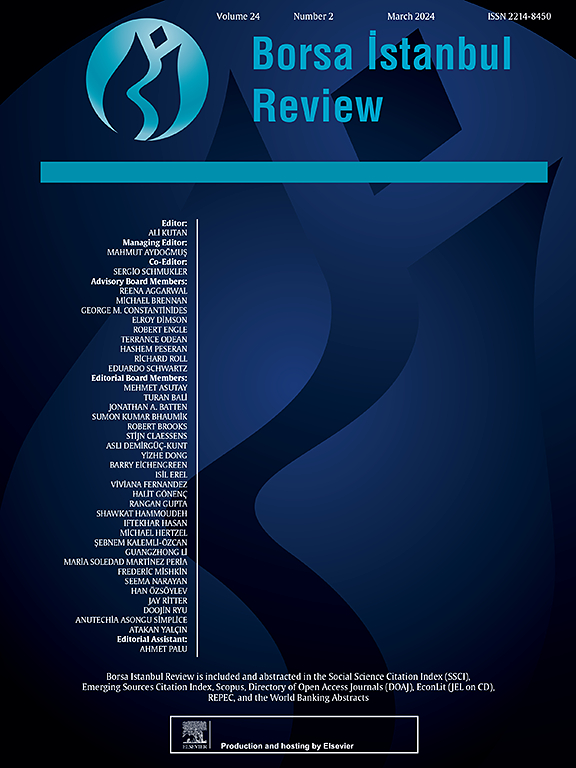An analysis of crypto-asset trade, enforcement, and estate planning
IF 6.3
2区 经济学
Q1 BUSINESS, FINANCE
引用次数: 0
Abstract
This study examines crypto-asset trading, focusing on regulatory violations that lead to enforcement actions and the impact of estate planning after a digital asset holder's death. We review the literature on crypto-asset estate planning and explore lessons from Islamic finance regarding crypto assets. We then use quantitative analysis to compare price-volume relationships in Islamicoin and Bitcoin. To strengthen our analysis, we employ the Kaplan-Meier survival estimate, parametric survival analysis, and the Probit model. Our findings show that Islamicoin's trade volume predicts market price changes more often than Bitcoin's, which seems to be influenced by factors other than trade volume. Further investigation reveals that securities regulators are increasingly enforcing rules against crypto-trading violations. These violations typically occur when trading activity decreases while prices increase. We also find that widespread price changes tend to motivate people to violate the regulations over time. Recently, positive price changes, rather than trade volume, have been the main factor influencing regulatory violations. However, trade effects were observed later in some of our models. Given these findings, we conclude that regulators need to improve digital assets Act to address estate planning issues, in addition to protecting investors. The paper ends with policy recommendations and suggestions for future research.
求助全文
约1分钟内获得全文
求助全文
来源期刊

Borsa Istanbul Review
Multiple-
CiteScore
7.60
自引率
3.80%
发文量
130
审稿时长
26 days
期刊介绍:
Peer Review under the responsibility of Borsa İstanbul Anonim Sirketi. Borsa İstanbul Review provides a scholarly platform for empirical financial studies including but not limited to financial markets and institutions, financial economics, investor behavior, financial centers and market structures, corporate finance, recent economic and financial trends. Micro and macro data applications and comparative studies are welcome. Country coverage includes advanced, emerging and developing economies. In particular, we would like to publish empirical papers with significant policy implications and encourage submissions in the following areas: Research Topics: • Investments and Portfolio Management • Behavioral Finance • Financial Markets and Institutions • Market Microstructure • Islamic Finance • Financial Risk Management • Valuation • Capital Markets Governance • Financial Regulations
 求助内容:
求助内容: 应助结果提醒方式:
应助结果提醒方式:


